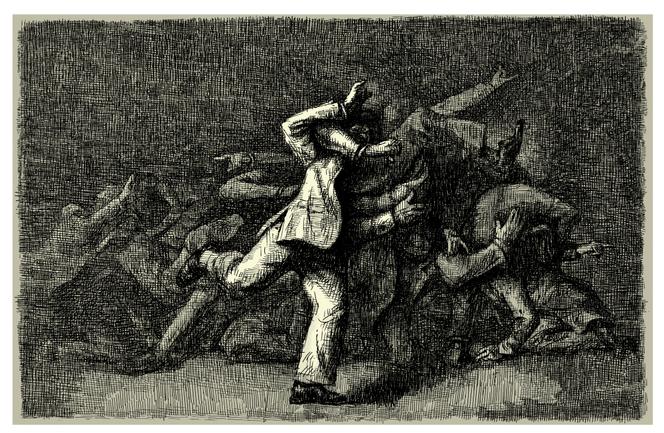


With France's first round of snap legislative elections on Sunday, June 30, fast approaching, the political world is holding its breath. On the one hand, Emmanuel Macron is holding out hope of regaining a "government majority," despite his coalition's rout in the June 9 European elections. On the other hand, the political mess created by the dissolution of the Assemblée Nationale, with the far right at its peak, threatens to erupt into an institutional crisis after the second round of elections, on July 7.
"Who to govern France?" This is the question asked by Macron in an open letter to the French, which was published on Sunday, June 23. In his desire to dramatize the electoral moment, in which the survival of his 250 MPs is just as much at stake as his political legacy, Macron promised that "the way we govern must change profoundly," no matter what fate the electorate may have in store for him.
According to various polls, the Rassemblement National (RN, far-right) party has maintained its electoral momentum from the European elections, having captured almost 40% of the vote, together with Reconquête, far-right pundit Eric Zemmour's party. The left-wing Nouveau Front Populaire (NFP) alliance is hot on the RN's heels, while the presidential camp remains in a distant third place. Between the far-right and left-wing blocs, Renaissance and its allies "tend to resemble what François Bayrou's MoDem [centrist party] was in 2007, a central force around 15%, caught up in the right-left bipolarization," noted Jean-Yves Dormagen, a professor of political science at the University of Montpellier.
While there are still major unknowns (voter turnout, number of 3-way run-offs and the traditional "Republican front" alliance against the far-right), which muddy all electoral forecasts, one element stands out as self-evident: With the Assemblée Nationale unable to be dissolved for one year, i.e. from now until July 2025, the center of gravity of Macron's five-year term will shift from the Elysée to the prime minister and the Assemblée Nationale. A host of scenarios that once seemed improbable now, all of a sudden, seem plausible. "For the past seven years, Emmanuel Macron has underestimated the parliamentary dimension of the Fifth Republic," observed Thomas Ehrhard, a lecturer in political science at the Paris-II-Panthéon-Assas University.
A cohabitation with the far right or the left cannot be ruled out. Initially, however, Macron could find himself at the mercy of an ungovernable chamber, one characterized by strong hostility toward him. He would run the risk that opposition MPs could join forces and vote no-confidence motions against his government at the slightest opportunity. Furthermore, the elected members of his coalition, reeling from the dissolution, may break free, with a view to the 2027 presidential election. Economy Minister Bruno Le Maire sounded the alarm early on. "Either there is a clear majority, or we run the risk of a regime crisis," he said on BFM-TV.
You have 67.93% of this article left to read. The rest is for subscribers only.
